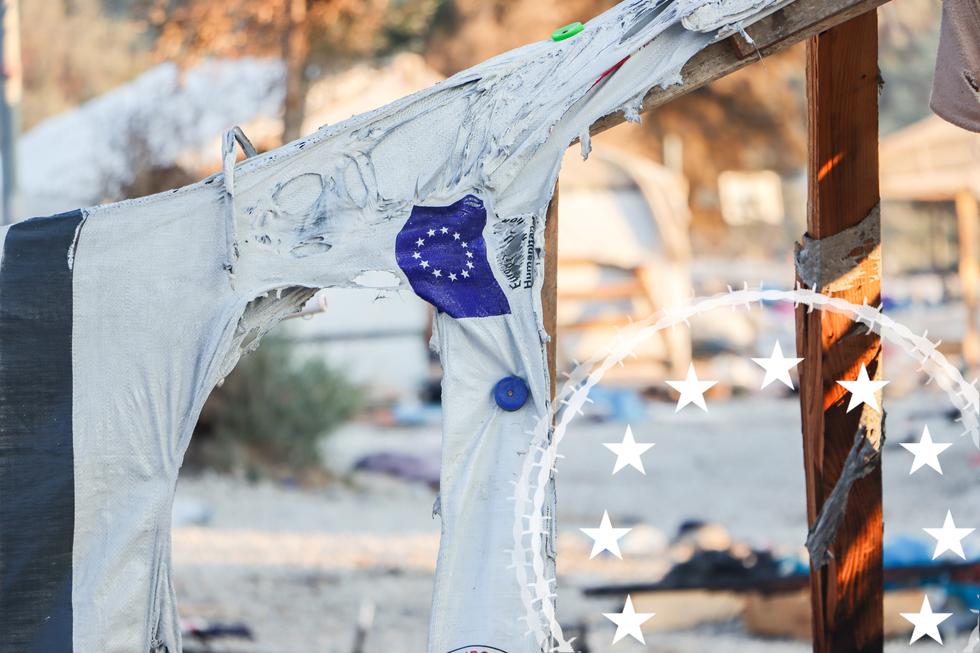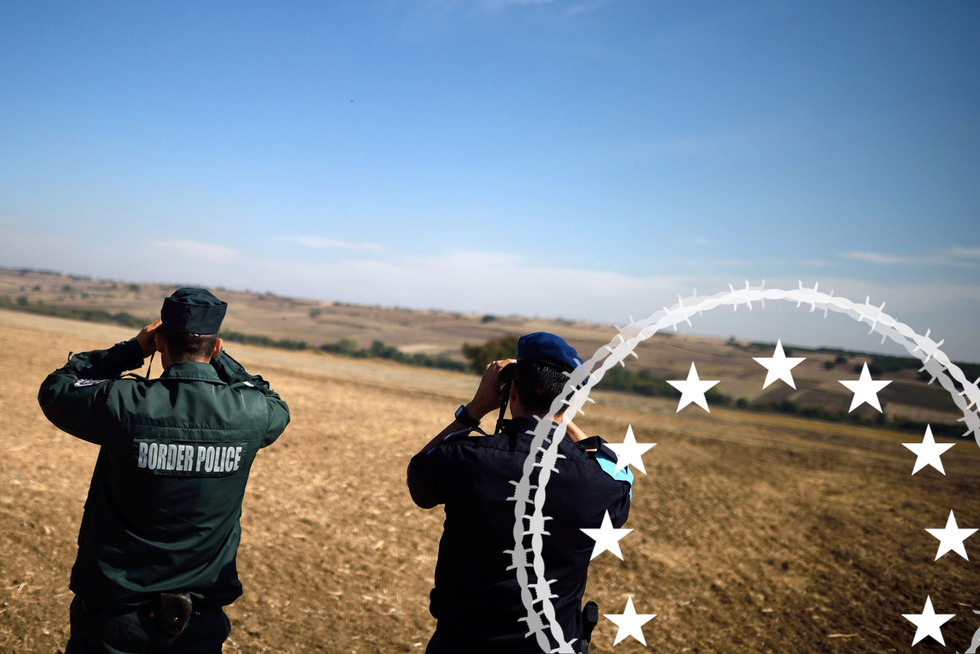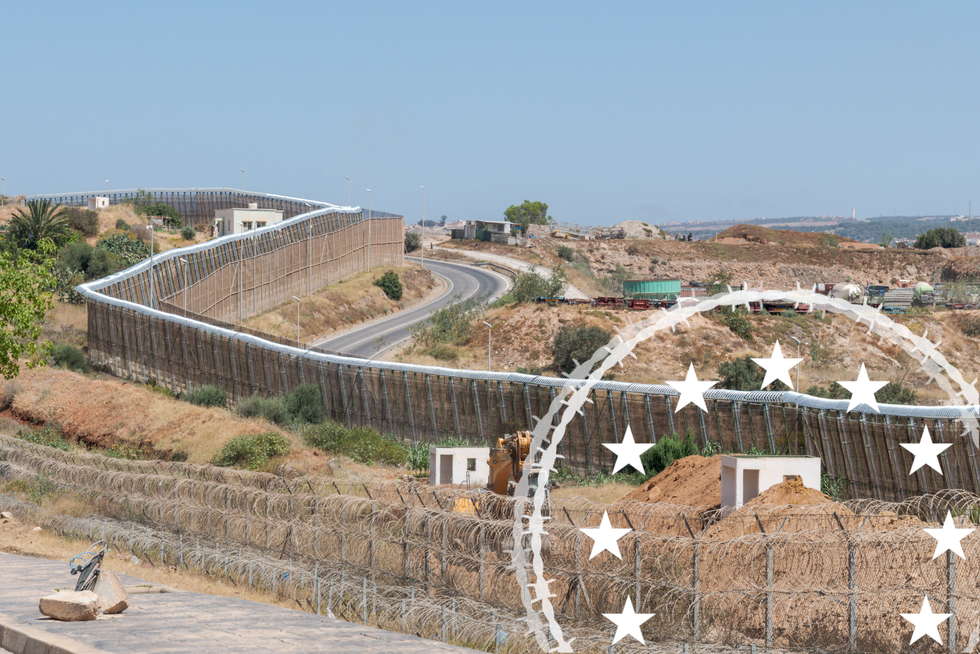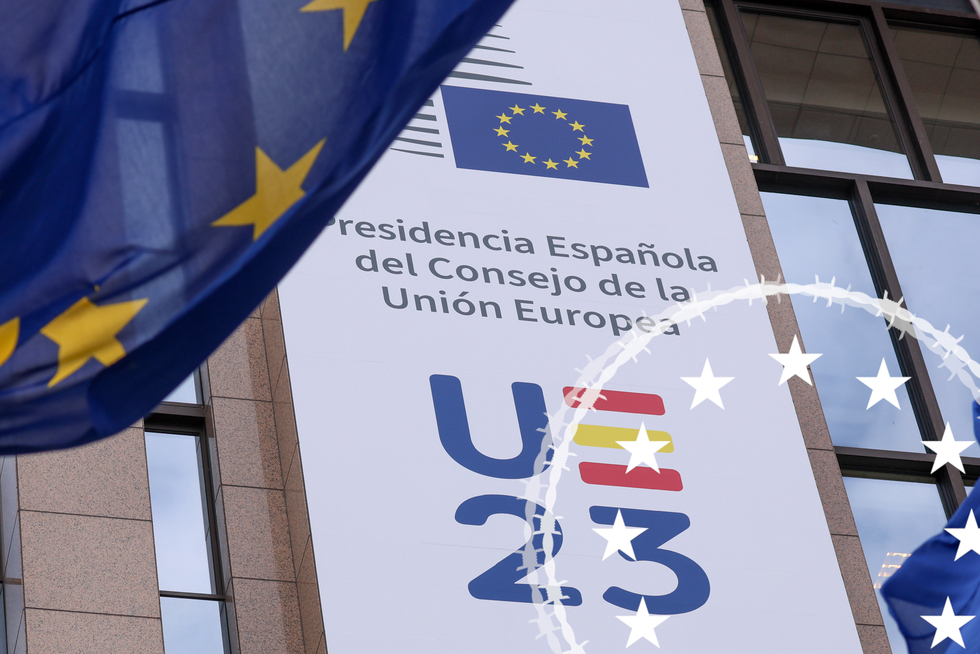The Human Life Cost of the New Pact on Migration and Asylum

Reforming the Common European Asylum System (CEAS) through the New Pact on Migration and Asylum (New Pact) represent a top priority at the European Parliament as the debate continues among members of parliament (MEP) to confirm their commitment towards the adoption of the legislative proposals before the European elections in 2024. The MEPs agree that the reform must be seen as a consistent set of texts to be examined in a comprehensive way respecting a strict balance between all components of the Pact. The European Parliament and the rotating Council Presidencies work with the agreed joint roadmap on the organization, coordination, and implementation of the timeline for the negotiations between the co-legislators on the New Pact, enabling the conclusion of the whole package of proposals by the end of this parliamentary term.
While the New Pact purports to reform and streamline the Common European Asylum System, our perspective as human rights defenders urges a critical examination of the proposed changes as the potential implications on human rights are both profound and concerning. The delicate balance between managing migration challenges and safeguarding fundamental human rights is at the heart of our concerns. And as human rights defenders, our unwavering commitment is to advocate for the rights and dignity of individuals, particularly those who find themselves in vulnerable and challenging situations.
Reduced protection standards: A human life cost
Looking at the New Pact proposals, human rights defenders are alarmed by the apprehension of reduced protection standards in Europe. They emphasize the complex dynamics of externalizing responsibility, an approach which raises troubling questions about increased vulnerability and compromised safety. The proposal to externalize responsibility involves transferring aspects of the asylum process to countries beyond Europe's borders. While the idea might be framed as a pragmatic approach to managing migration, it inherently carries profound human rights implications.
The most profound concern is whether the potential reduction in protection standards compromises the safety of those seeking asylum. Safety is a core tenet of human rights, and any measure that puts individuals at risk of harm contradicts these principles. Externalization, if not executed with meticulous attention to human rights, may inadvertently expose individuals to perilous conditions, whether through prolonged stays in unsafe locations or inadequate access to essential services. Certain groups, such as children, women, and LGBTQ+ individuals, are particularly susceptible to the consequences of reduced protection standards. The potential for increased vulnerability, discrimination, and violence against these groups raises ethical and human rights concerns. Human rights defenders emphasize the need for a system that prioritizes the specific needs and vulnerabilities of these groups, ensuring their safety and well-being.
The concept of externalization introduces legal ambiguities that can disproportionately affect vulnerable populations, including refugees and those fleeing persecution. For instance, it raises questions about the adherence to international conventions and human rights standards in the countries chosen for external processing. This is enough reason to worry that individuals, particularly those escaping life-threatening situations, may face legal uncertainties that compromise their access to fair and just asylum procedures.This will lead to individuals being processed and assessed in regions in which legal frameworks and protection possibilities are less robust than those within the European Union¾where the situation also differs widely between countries. This scenario presents a clear human life cost, as individuals may find themselves in situations where their rights are not adequately upheld, leaving them exposed to potential dangers, exploitation, and inadequate living conditions.
Barriers to family reunification and integration
The concerns surrounding reduced protection standards in the context of migration policies extend beyond individual rights to encompass the intricate dynamics of family life and societal integration. One noteworthy consequence is the potential hindrance to family reunification and the successful integration of migrants into their host societies. The process of externalizing responsibility may inadvertently overlook the significance of maintaining family units and understanding the intricacies of family dynamics. Reduced protection standards will introduce barriers to the family reunification process. This disruption not only has legal implications but can also lead to fractured families, this can exacerbate the emotional and psychological toll on individuals, and have a long-term psychological impact on individuals who find themselves isolated from their closest support networks.
Successful integration relies heavily on a sense of belonging and familial stability, elements that are jeopardized when families are forcibly separated. The emotional toll of fractured families is a human cost that cannot be underestimated. Individuals facing displacement and seeking asylum are already navigating a complex web of uncertainties. The added burden of separation from family members amplifies the challenges they face, potentially contributing to feelings of isolation, anxiety, and depression. Moreover, the psychological impact on children, who may be separated from their parents or siblings, can have lasting effects on their development and well-being. Recognizing the importance of family unity and understanding the psychological implications of separating loved ones is crucial in shaping migration and asylum policies. It is essential to understand the need for a compassionate and holistic approach that considers not only individual rights but also the preservation of family units.
Border monitoring and detention: A breeding ground for abuse
The proposed procedural changes, emphasizing expanded border procedures, raise red flags. The risk of increased detention in prison-like facilities, especially for vulnerable populations, is antithetical to human rights principles. The potential escalation in detention practices, a consequence of the proposed changes, demands our immediate attention. Detention, particularly of vulnerable groups like children and families, poses a direct threat to human rights and stands in stark contradiction to the principles enshrined in international law. The experience of detention is harrowing and can have lasting psychological and physical effects on individuals. For children, the impact is particularly severe, as they are more susceptible to the detrimental effects of confinement. It is our moral obligation to resist any measures that may lead to an increase in such detention practices.
The absence of robust and effective border monitoring mechanisms is a significant concern. Without proper oversight, the potential for human rights violations at Europe's borders, including push-backs and disregard for the dignity of individuals, becomes a stark reality. As human rights defenders, we emphasize the critical need for stringent monitoring. Effective border monitoring is not merely a procedural formality; it is a fundamental safeguard against abuses and violations of human rights. It serves as a check on the power granted to border control authorities, to ensure that their actions align with international human rights standards. Without such monitoring, the risk of uncontrolled abuses and violations increases exponentially, jeopardizing the lives and well-being of migrants and asylum seekers.
The proposed changes to the concept of what constitutes a "safe country" demand a nuanced analysis of the potential human cost. Redefining safety without due consideration could expose individuals to greater danger, contradicting the very essence of providing refuge. The concept of a "safe country" is a cornerstone of asylum systems, providing a framework to determine whether individuals face a genuine risk of persecution or serious harm in their country of origin. Redefining this concept without due consideration for the complex and dynamic nature of conflicts, human rights abuses, persecution and changing circumstances around the world could lead to severe consequences.
A call for a humane approach
The cumulative effect of these concerns points to a potential human life cost that cannot be ignored. If protection standards are compromised, if legal ambiguities prevail, and if vulnerable populations face increased risks, the human toll will be significant.
In the final phase of negotiations of the New Pact on Migration and Asylum, our call as human rights defenders is clear: a humane approach must prevail. The responsibility falls on member states to ensure that the pact is not only sustainable and efficient but, most importantly, respectful of the dignity and rights of those seeking refuge. As advocates for the vulnerable, we stand firm in our commitment to a Europe that exemplifies compassion, fairness, and a steadfast defence of human rights. The decisions made in these crucial negotiations will shape the legacy of the EU, and we urge Member States to choose a path that truly reflects the values of justice, solidarity, and respect for human life.
In navigating the complex terrain of migration and asylum policy, we should advocate for a rights-based approach. This means upholding international human rights standards, ensuring access to fair and efficient asylum procedures, and safeguarding the well-being of individuals regardless of their migration status. The potential human life cost associated with reduced protection standards reinforces the urgency of a compassionate, principled, and rights-centric approach in shaping the EU's policies on migration and asylum for the next decades.
About the author

Sandra Alloush is a political refugee and an international award-winning journalist from Syria living in Strasbourg, France, she is a documentary filmmaker with a demonstrated history of working in the broadcast media industry for over 15 years, her work is focused on asylum and migration issues and she produced over 25 documentaries on subjects related to migration, asylum and human rights. Sandra is a human rights defender and anti-racist activist with lived experience, and she is an advocacy officer of New Women Connectors, a refugee-led organization.
The opinions and statements of the guest author expressed in this article do not reflect the position of the Friedrich-Ebert-Stiftung.





